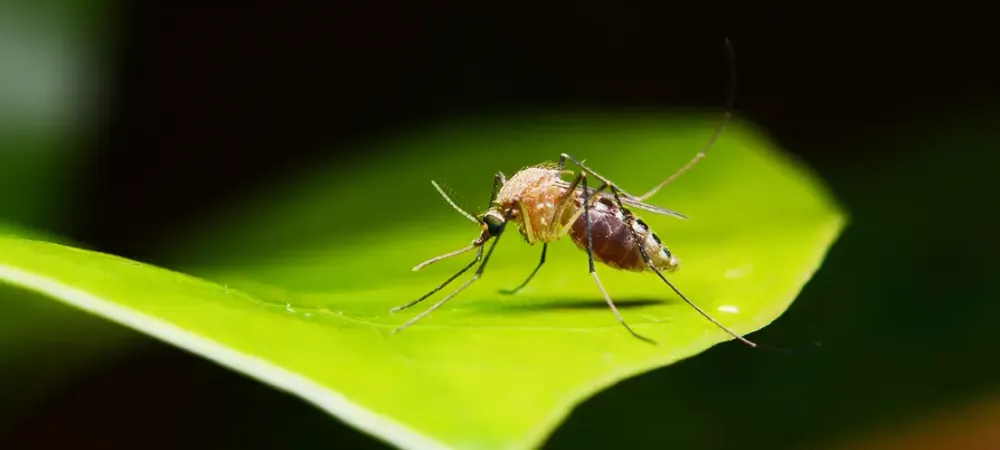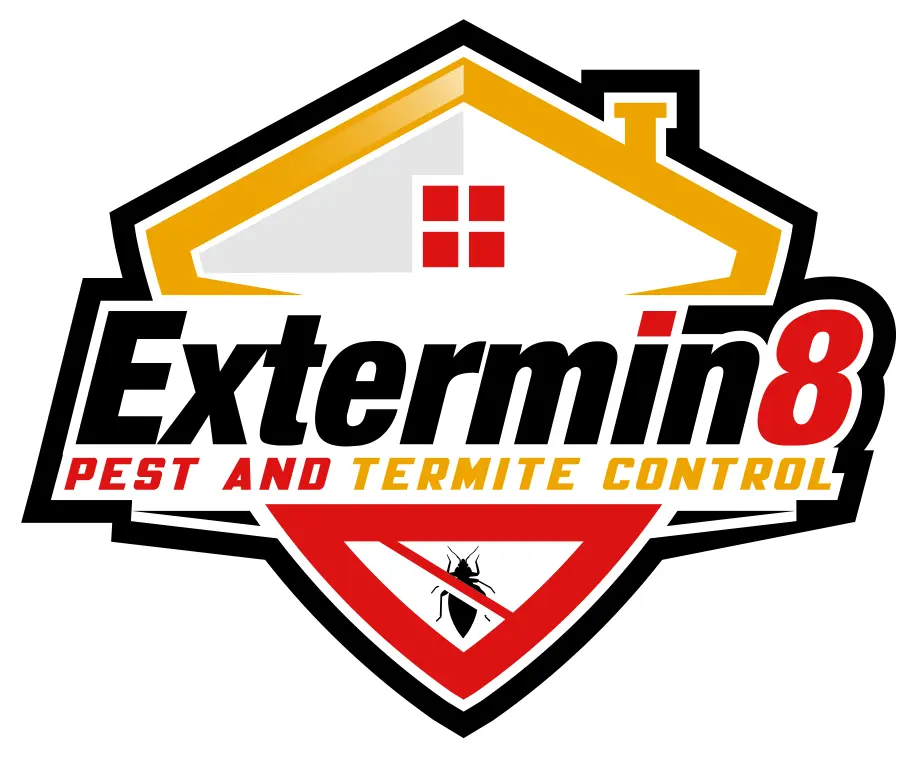What Attracts Mosquitoes?

Summer evenings in California should be about enjoying backyard barbecues, gardening, and relaxing under the stars—not constantly swatting at mosquitoes. Unfortunately, our warm climate and diverse landscapes make California a prime location for these pesky insects. Understanding what attracts mosquitoes to your yard and to you personally can help reduce their presence around your home.
We've gathered science-backed information from the University of California Statewide Integrated Pest Management (UC IPM) program to answer the most common questions about mosquito behavior.
What Attracts Mosquitoes to My Yard?
In California, your yard can easily become a mosquito breeding ground without you realizing it. Here’s where to focus your efforts:
Standing Water
Mosquitoes only need a tablespoon of water to breed. Check these common trouble spots:
- Birdbaths (change water weekly)
- Kiddie pools and unused swimming pools (cover or drain)
- Rain gutters (clean seasonally, especially after fall)
- Potted plant saucers (empty excess water after watering)
- Pet water bowls (change daily)
- Buckets, wheelbarrows, or toys (store upside-down or indoors)
- Old tires or tarps (drill holes or remove)
UC IPM emphasizes that eliminating standing water is the most effective step in reducing mosquito populations.
Overgrown Vegetation
Mosquitoes rest in cool, shaded spots during the day. Regular maintenance helps:
- Trim bushes and shrubs
- Mow grass weekly during the growing season
- Remove yard debris (piles of leaves or wood)
- Keep decorative plants well-pruned and spaced for airflow
Irrigation Practices
Overwatering your lawn or garden can create soggy areas where mosquitoes thrive.
- Fix leaky outdoor faucets
- Adjust irrigation timers for minimal watering
- Fill low spots in your lawn where water collects
In drought-prone California, it’s good for both mosquito control and water conservation to water efficiently.
Outdoor Lighting
Certain types of outdoor lights, especially incandescent and halogen bulbs, can attract mosquitoes at night. Switching to yellow "bug lights" or LED bulbs can reduce attraction. These are less attractive to mosquitoes while still providing visibility.
How to Prevent Mosquitoes?
Here’s a practical, step-by-step guide you can implement today:
Weekly Mosquito Prevention Checklist:
✅ Dump or drain all standing water
✅ Scrub birdbaths and fountains
✅ Clean out gutters
✅ Check under potted plants
✅ Refresh pet water daily
✅ Run your pool pump or cover the pool
Monthly Yard Maintenance:
✅ Mow lawn and trim shrubs
✅ Clear debris piles
✅ Rake leaves and thin out dense vegetation
✅ Inspect fence posts and outdoor structures for hidden water
Smart Outdoor Habits:
✅ Wear light-colored, loose-fitting clothing outdoors—long sleeves and pants are encouraged
✅ Apply EPA-approved repellents (DEET, picaridin, or oil of lemon eucalyptus)
✅ Avoid peak mosquito times (dawn and dusk)
✅ Install or repair window and door screens to keep out mosquitoes
Don’t Let Invasive Mosquitoes Take Over
California is seeing a rise in Aedes aegypti (yellow fever mosquito) and Aedes albopictus (Asian tiger mosquito), which are active during the day and bite aggressively. They breed in tiny water sources like bottle caps and flowerpot trays.
If you notice daytime biting or persistent mosquito activity despite your prevention efforts, you may be dealing with these invasive species.
How Extermin8 Can Help California Homeowners
At Extermin8, we specialize in comprehensive mosquito control tailored to California’s unique environment.
- Targeted Mosquito Treatments: Our technicians identify high-risk breeding zones and apply safe, eco-friendly treatments to eliminate mosquitoes where they live and breed.
- Mosquito Barrier Protection: We apply residual barrier sprays that repel mosquitoes for weeks at a time, perfect for outdoor gatherings, pool parties, or everyday backyard enjoyment.
- Expert Inspections & Prevention Guidance: We don’t just treat the problem—we help you understand it. Our team will:
- Inspect your property for hidden breeding sites
- Provide customized recommendations for ongoing prevention
- Offer monthly or seasonal mosquito control plans
- Transparent, Reliable Service: With flexible scheduling, no contracts required, and child- and pet-safe solutions, Extermin8 is California’s trusted partner in creating mosquito-free outdoor spaces.
Don’t let mosquitoes take the joy out of your summer. Partner with Extermin8 Pest and Termite Control for fast, effective mosquito control and get back to enjoying your home. Contact our mosquito exterminators today!
FAQ About Mosquito Prevention
Is It Safe to Use Mosquito Control Products Around Pets and Kids?
Yes—when done properly. Products approved by the EPA (like DEET and picaridin) are safe when used according to label directions. At Extermin8, we prioritize pet- and child-safe treatments, using eco-friendly products that target mosquitoes but are safe for your family.
For natural deterrents, you can safely use plants and essential oils around pets, but always research specific oils as some (like tea tree oil) can be harmful to cats and dogs if ingested.
What Are the Best Mosquito-Repelling Plants for My Yard?
Certain plants can naturally deter mosquitoes while enhancing your outdoor space. Here are some homeowner favorites for California yards:
- Lavender: Hardy and drought-tolerant, with a pleasant scent for humans but disliked by mosquitoes.
- Citronella Grass: The true source of citronella oil, best planted in pots.
- Marigolds: Bright flowers that also repel aphids and other pests.
- Basil: Easy to grow, repels mosquitoes, and great in your kitchen.
- Bee Balm: Attracts pollinators like bees and butterflies, but repels mosquitoes.
- Catnip: Highly effective at deterring mosquitoes—just be prepared for cat visitors!
Pro Tip for California: Choose drought-tolerant varieties like lavender and rosemary to conserve water while controlling mosquitoes.
What Smells Do Mosquitoes Hate?
Mosquitoes have strong olfactory senses, but some scents can naturally repel them. According to UC IPM and various studies, these scents are known to deter mosquitoes:
- Citronella (lemongrass oil)
- Lavender
- Peppermint
- Eucalyptus
- Lemon balm
- Clove
- Basil
- Catnip (scientifically proven to be more effective than DEET in some studies)
Using these scents in essential oil diffusers, candles, or plantings around your patio can help reduce mosquito attraction, though they are best used in combination with other prevention methods.
What Time of Day Are Mosquitoes Most Active?
It depends on the species:
- Culex mosquitoes (common in California) are most active from dusk to dawn.
- Aedes aegypti and Aedes albopictus, invasive species now found in many California neighborhoods, are aggressive daytime biters, especially during early morning and late afternoon.
Knowing the timing helps you plan protective clothing and repellent use when you need it most.
Why Are Mosquitoes Attracted to Certain People?
If you feel like mosquitoes love you more than others, you’re probably right. Scientific studies and UC IPM resources point to several reasons:
- Genetics: Your unique body chemistry can make you more appealing to mosquitoes. Everyone has a unique mix of skin bacteria and natural oils. Some people simply smell “tastier” to mosquitoes.
- Blood Type: Studies suggest people with Type O blood are more attractive to mosquitoes than Type A or B.
- Metabolism & Activity Level: Exercise increases CO₂ output and body temperature, making you more noticeable.
- Alcohol Consumption: Even one beer can change body odor and temperature, increasing your attractiveness.
- Pregnancy: Pregnant women exhale more CO₂ and have higher body temperatures, attracting more mosquitoes.
Why Do Mosquitoes Bite?
Only female mosquitoes bite because they need the protein found in blood to produce eggs. Male mosquitoes, in contrast, feed on nectar and plant juices. Females use a specialized mouthpart called a proboscis to pierce the skin and draw blood, injecting saliva that can cause itching and irritation.
In California, some species also transmit diseases such as West Nile virus, Zika virus, and Saint Louis encephalitis, which is why controlling mosquito populations is important for both comfort and health.
